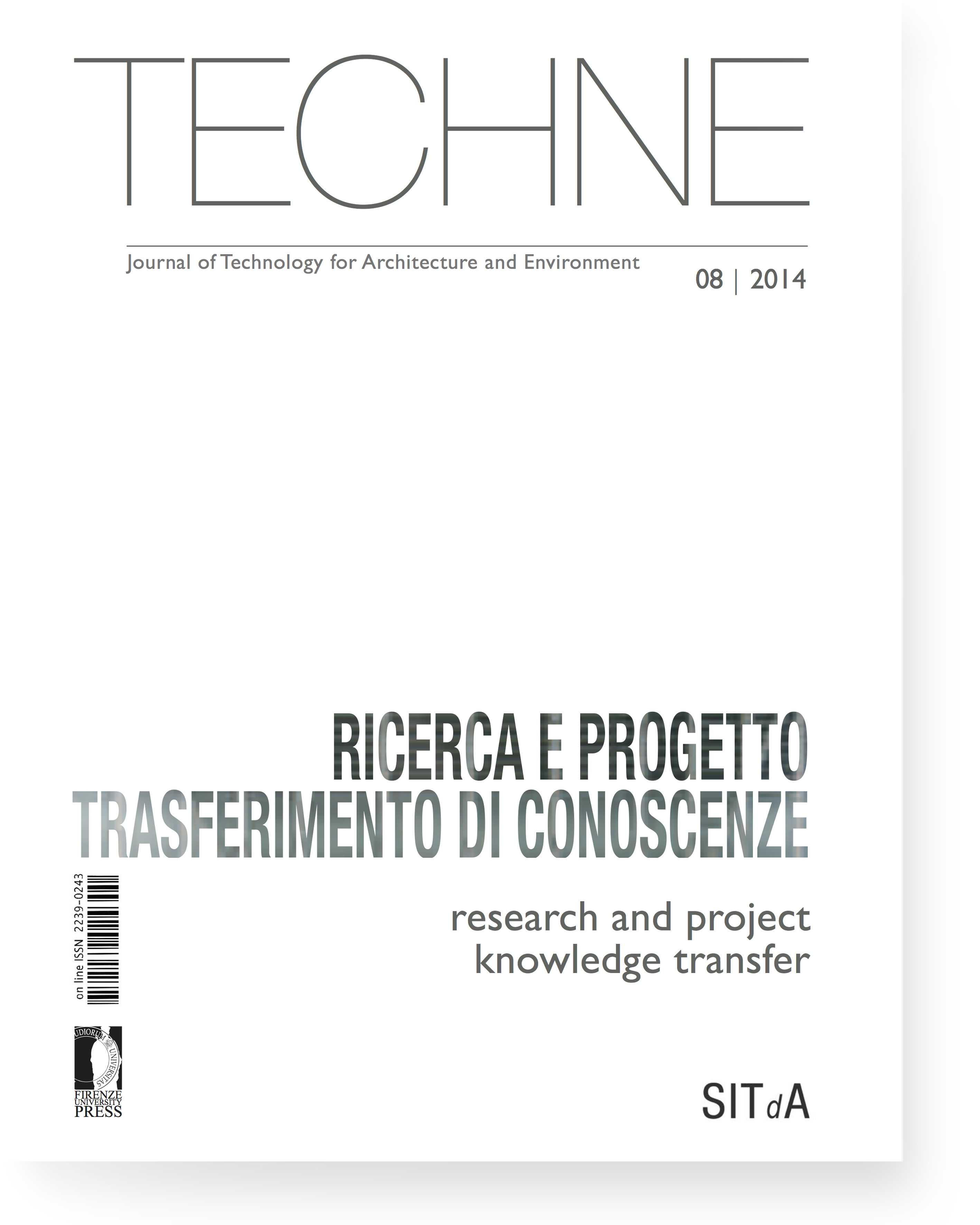Research and Experimentation
Published 2014-10-24
Keywords
- Uncertainty,
- Obsolescence,
- Life Cycle Design,
- Spatial flexibility
How to Cite
Cellucci, C., & Di Sivo, M. (2014). Strategies for spatial and technological flexibility. TECHNE - Journal of Technology for Architecture and Environment, (8), 271–277. https://doi.org/10.13128/Techne-15082
Abstract
The design of housing sys- tems is today challenged by a highly uncertain context, dominated by the rapid development of functional and technological obsolescence in inherited housing models. The design of housing systems should first and foremost optimise the longevity of the sub-systems and be able to offset the process of obsolescence which is concomitant to both the current use of materials and components devised to fail after a short period, and to rigid spatial models that are incapable of adapting to changes in the household’s needs over time. This research examines flexibility as a fundamental requirement to be incorporated in the Life Cycle of the house, through the use of strategies that affect both the form and the technological system that governs its structure.Downloads
Download data is not yet available.






